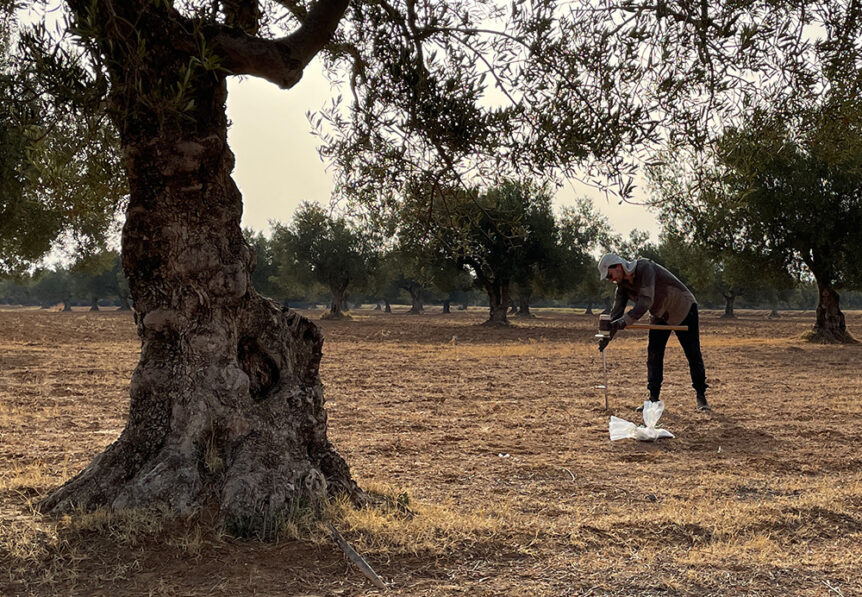SustInAfrica Field Trials in Tunisia: Exploring the Benefits of Agroecological Practices for Soil Health and Crop Yield
In the 2023/2024 season, the agroecological zones of Northern and Central Tunisia, where the SustInAfrica field trials are implemented, received sufficient rainfall. This was a significant change from the previous two years, which were characterized by severe droughts and temperatures exceeding 50 °C in 2023.
The field trials in Tunisia include five treatments: a farmer’s practice (control), no tillage, compost application, and two intercropping treatments (faba bean and fenugreek). After incorporating the intercrops in April 2024, partners from the Olive Institute (IO, Tunisia) and BOKU University (Austria) conducted a soil sampling mission in early July 2024.






Sampling began in Toukaber, in Northern Tunisia (500-600 mm rainfall), where the trial is implemented on-farm (rainfed). Soil samples were collected at depths of 0-15 cm and 15-30 cm, with four samples from each treatment plot combined into one composite sample per plot. With three blocks and five treatments per block, 60 samples were taken—a challenging task even at 7 a.m., where temperatures already climbed to 30 °C. Additionally, five samples were collected using a Soil Density Volumeter (a calibrated cylinder with 100 cm3 density) to measure bulk density at around 15 cm. As a reward, we enjoyed the farmer’s homemade lemon juice and well-aged goat cheese. In addition, we were provided with a tour of the goat shed and olive mill.



In the following days, we sieved and prepared the samples for analysis and also sampled at SustInAfrica’s two additional trial sites in Central Tunisia that contain the same treatments as in the North. The site in Jammel (rainfed, ca. 300 mm rainfall) is located on the land of the farmer’s training centre and another on-farm site is placed in Kondar (irrigated). In Kondar, we were again welcomed with great hospitality by the farmers. This time we were provided with the local, slightly sweet-tasting bread (Tabouna), a bread baked along the walls of a traditional terracotta oven, with the olive oil of the last season. The olive oil was made from Koroneiki olives, a variety originating in Greece, known for its high oil quality. The analysis of soil samples aims to evaluate soil health advances of the different soil conservation measures. However, we are aware that three experimental years limit the conclusions that can be drawn. Nevertheless, the analysis will help determine if further studies are needed. Depending on the primary soil analysis (total carbon and nitrogen, microbial biomass, dissolved nutrients), 15N isotope tracing may be used to determine the nitrogen provided by the intercrops to the olive trees. A preliminary analysis of last year’s yield data indicated very favourable outcomes from the intercropping and no tillage treatments with regard to olive yield and respective gross margins.
Written by Pierre Ellssel

